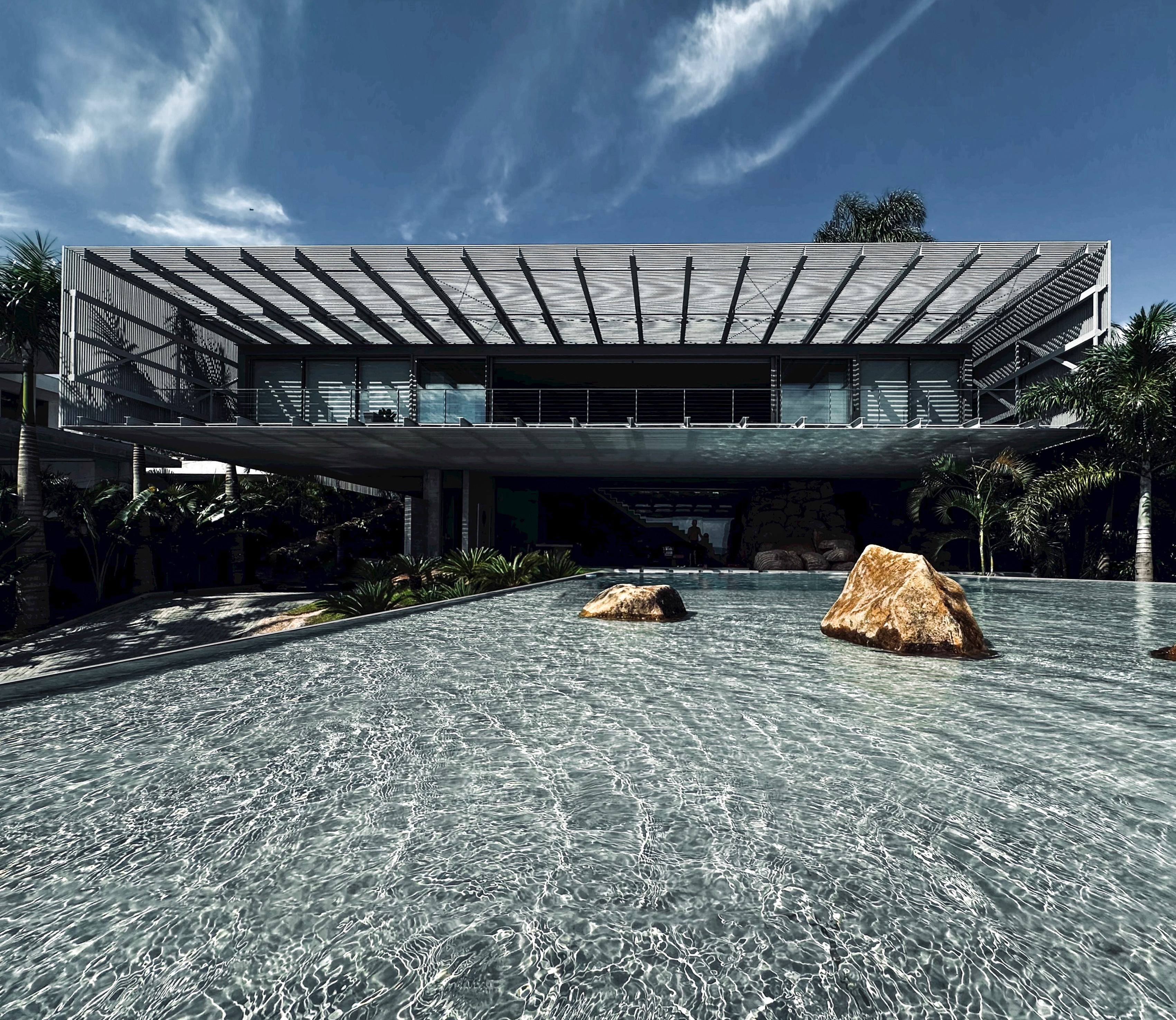
Set on the edge of the island of Florianópolis, Bridge House (also known as Casa Ponte) was conceived as a direct response to its striking environment. Its location off the southern coast of Brazil means a verdant setting and nature-infused views stretching from crystal clear blue waters to rich, leafy mountains are among the site's key assets – an aspect the residence's architects, Belo Horizonte-based Tetro Architecture, took to the extreme when designing this retreat for a private client, journalist Alexandre Oltramari.

Welcome to Bridge House by Tetro Architecture
The house takes its name from the island's three bridges. Located some 800m from the Brazilian mainland, these key items of infrastructure – the Hercílio Luz Bridge possibly being the most famous of the three – connect this small piece of land in the South Atlantic to the rest of the country, while also being a powerful symbol of the region.
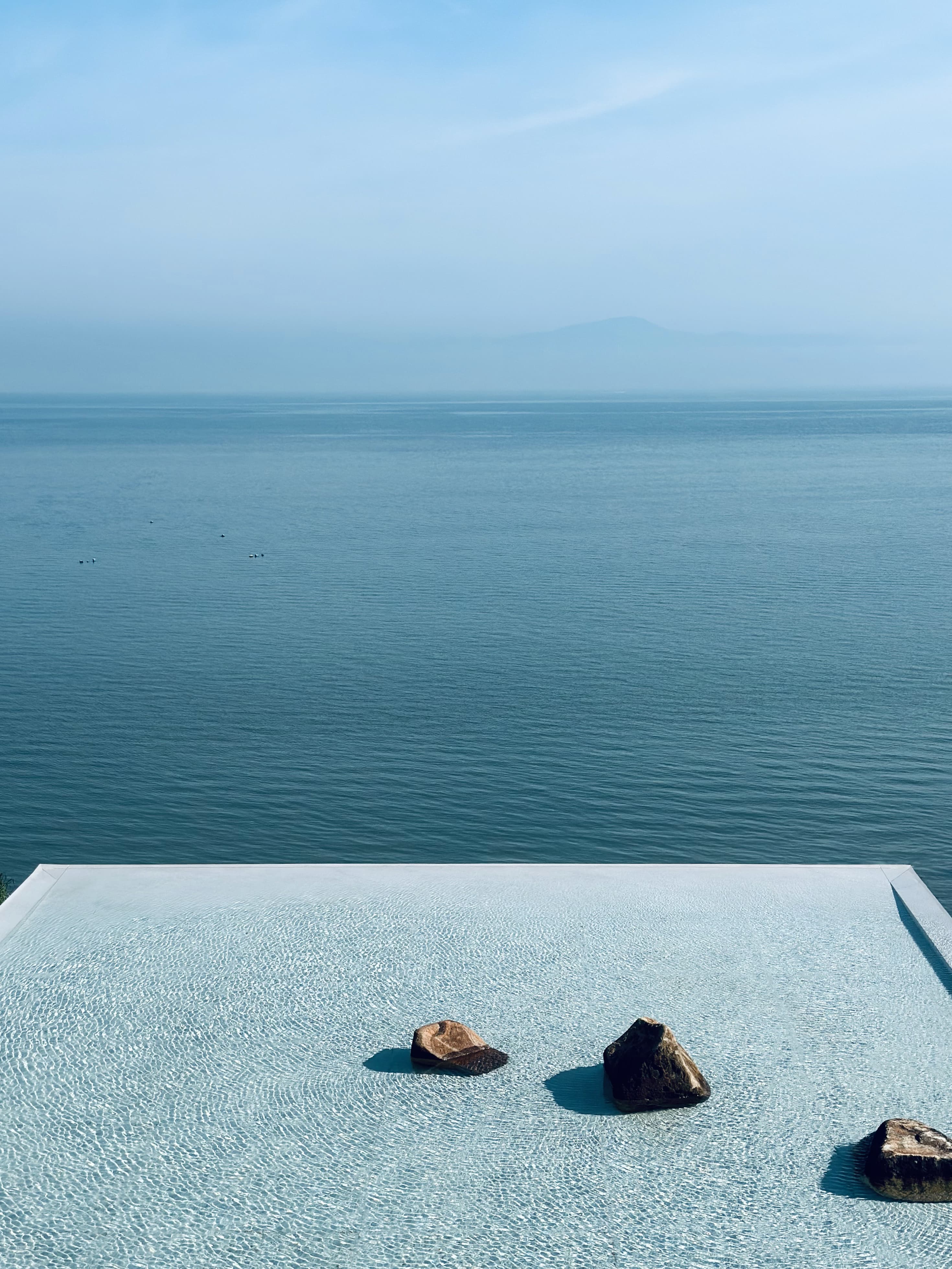
The home feels seemingly simple in its volumes and composition - a clean, minimalist rectangular 'box' containing an open plan living space that spills out to a lavish terrace offering long-reaching vistas of the water ahead, and separate, private sleeping quarters. Yet, it's a finely tuned piece of architecture that took research and hours of meticulous planning to get right.
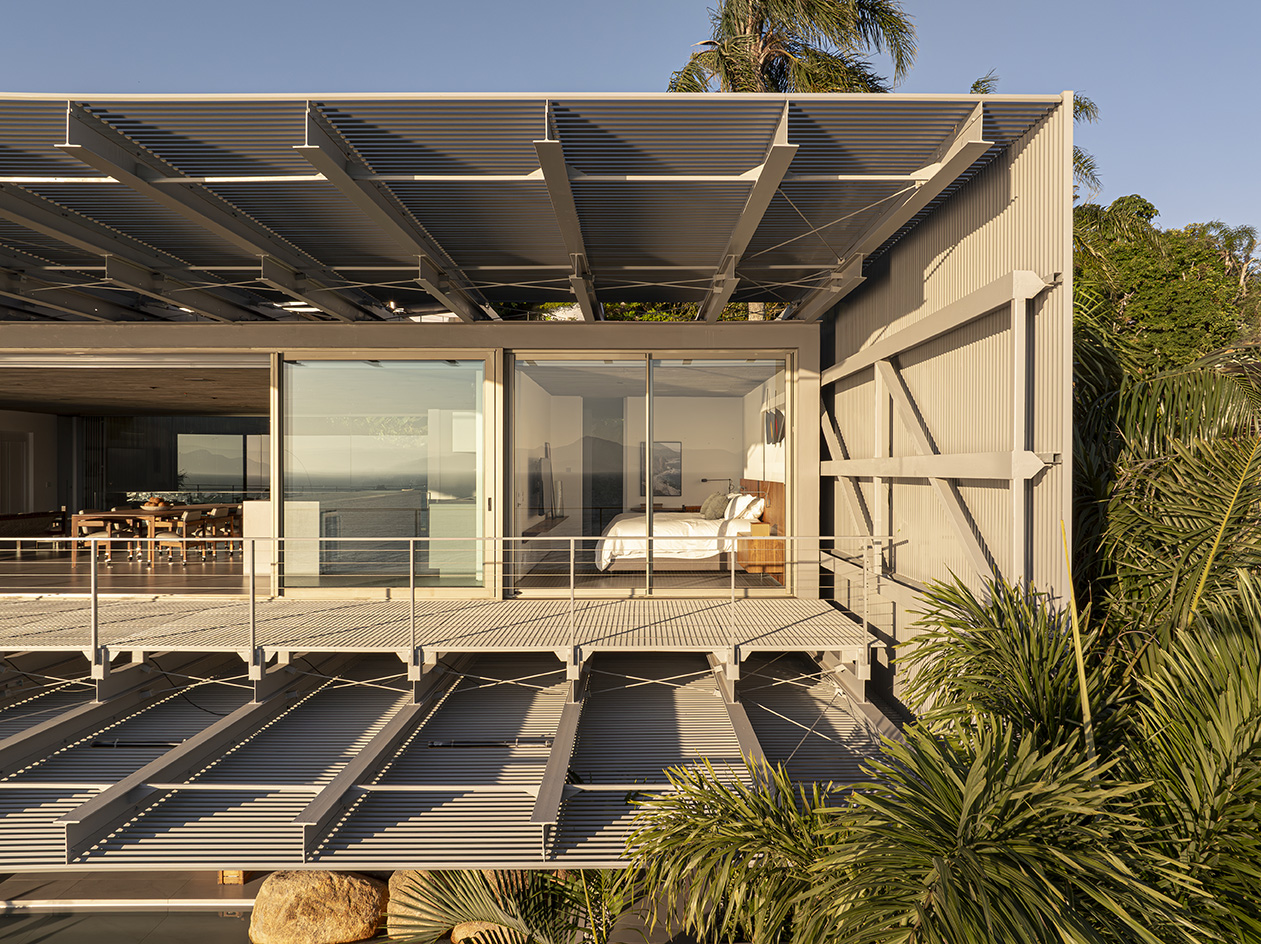
'It’s a house to live, see and be seen. We spend hours observing the angles of the house and the change of the landscapes throughout the day,' says Oltramari.
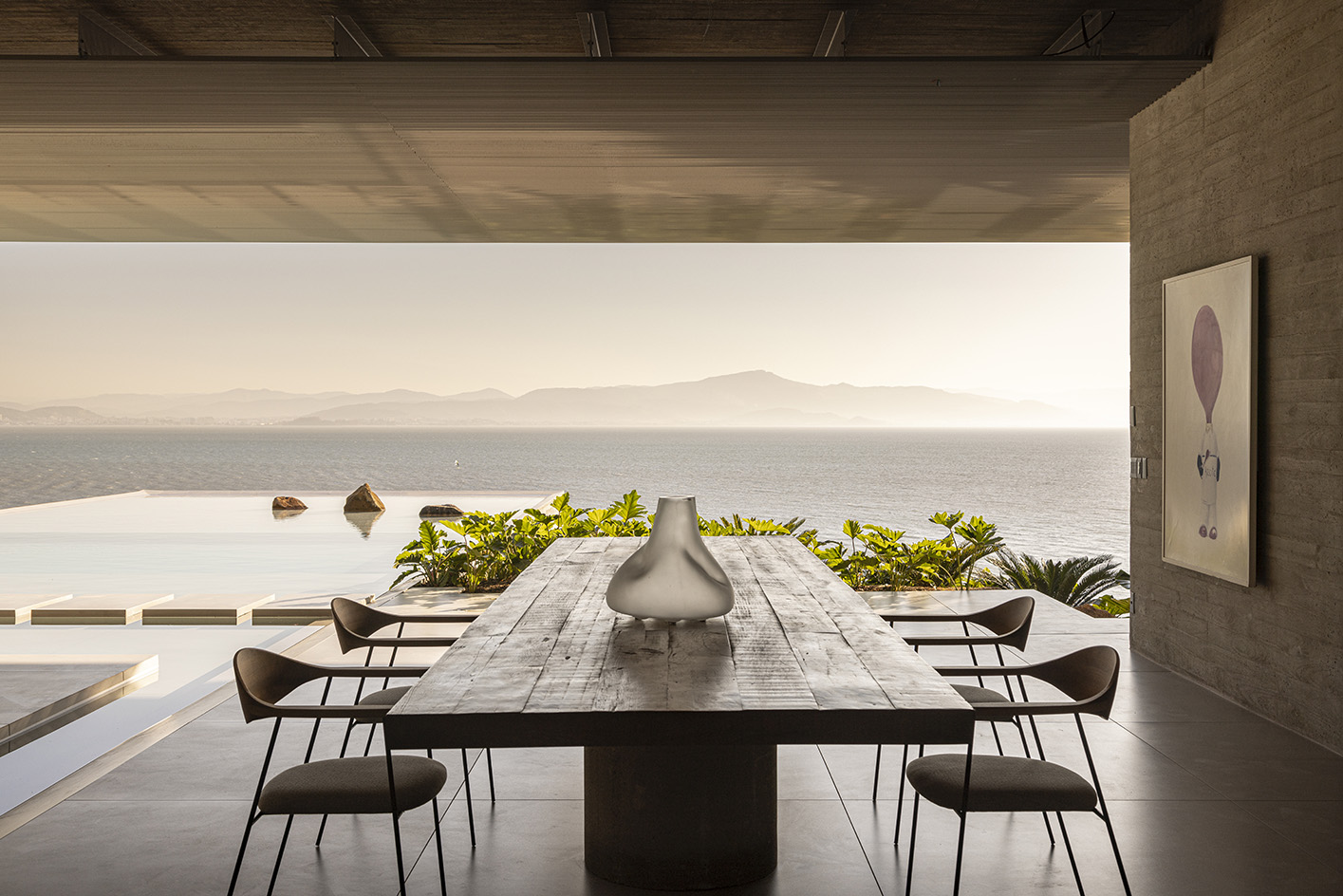
The bridges, extending over the island's waters, provided plenty of inspiration – echoed in the long, linear and elegantly minimalist form of the swimming pool deck. 'Like some kind of belvedere, the house projects itself towards the sea. But, in a respectful symbiosis, it also brings inside the scenario revealed from its interior,' says Carlos Maia, founding partner at Tetro Architecture.
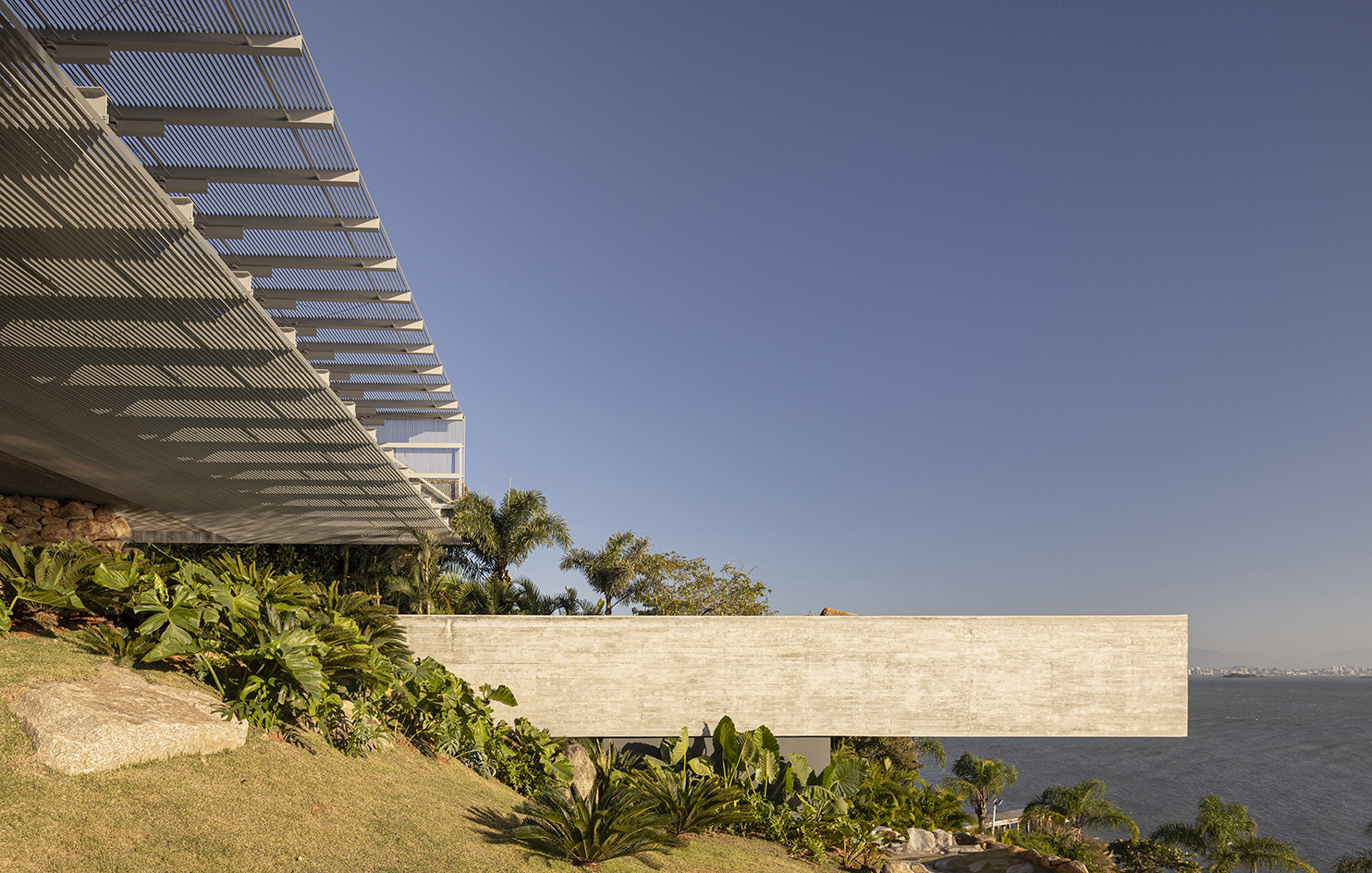
This balance and pared-down approach to volumes only made the architectural experience richer, and the same applies to the architects' attitude towards the sun and negotiating the region's strong light. 'This house needed a cap,' says Igor Macedo, also a partner at Tetro Architecture. The result was a 6m-long roof overhang that shades the living spaces and creates a comfortable outdoor area to lounge and take in the vistas.
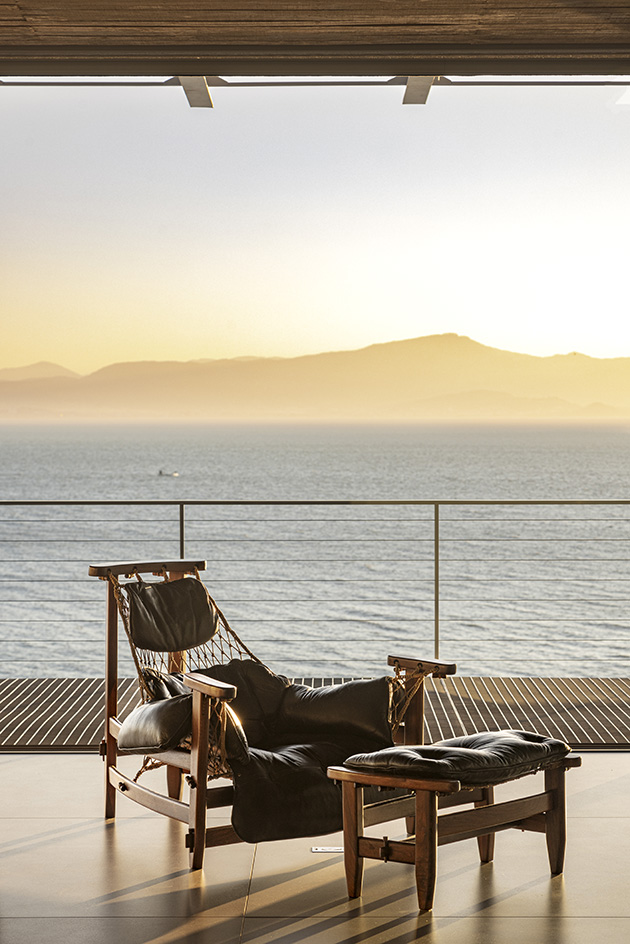
Bridge House's interiors were just as highly calculated and rooted in an appreciation for modern architecture, as its overall building design. Oltramari, who has lived for years in Brasilia, came across a wealth of modernist furniture by Brazilian designers such as Jean Gillon, Sergio Rodrigues and Jorge Zalszupin, which was sold as scrap at public auctions in the early 2000s, and bought them. These have now been revived and placed in the home.
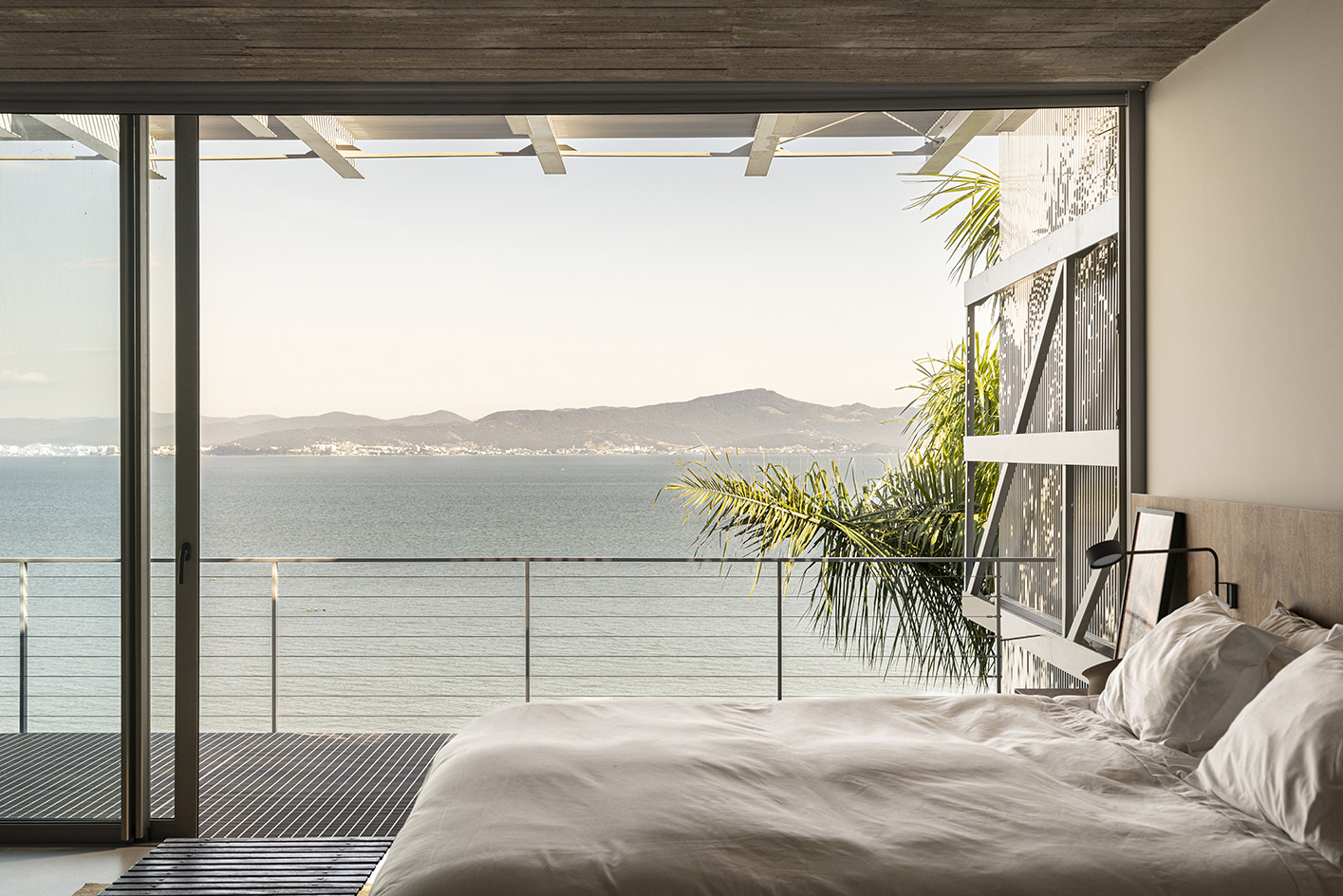
'The pieces really looked like trash. But all it took was some sandpaper and a coat of varnish to revive them and return to their original state,' says the owner. 'But better than buying a work of art for a symbolic value, it was preventing this piece of Brazilian design history, now so valued in galleries around the world, from literally ending up in the trash.'
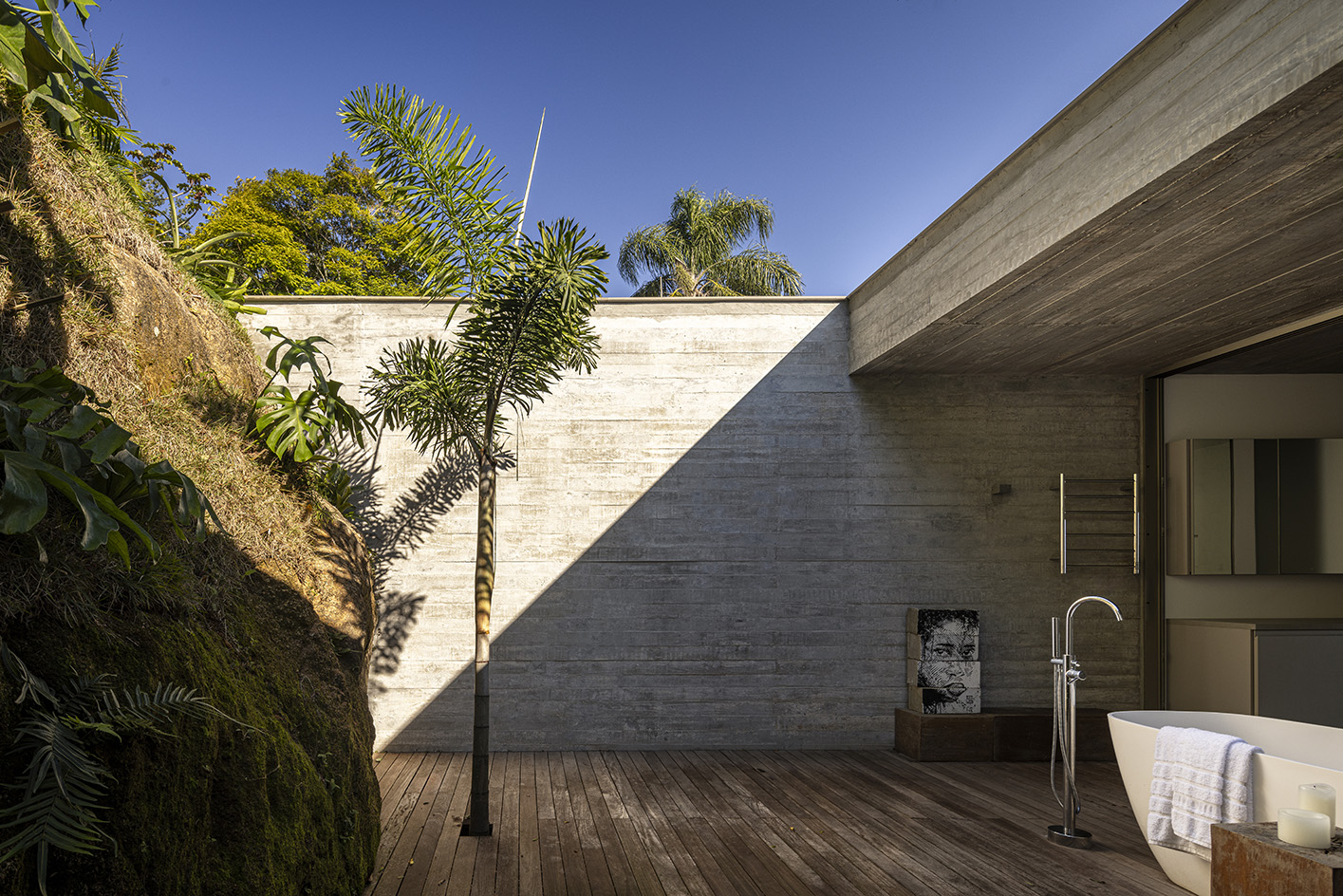
Blending drama, 21st-century aesthetics and high functionality, Bridge House offers a contemporary blend for a state-of-the-art holiday escape. 'Architecture needs to be logical, and rational, but it also needs to produce the beauty that moves people,' says Tetro Architecture's third partner, architect Debora Mendes.







